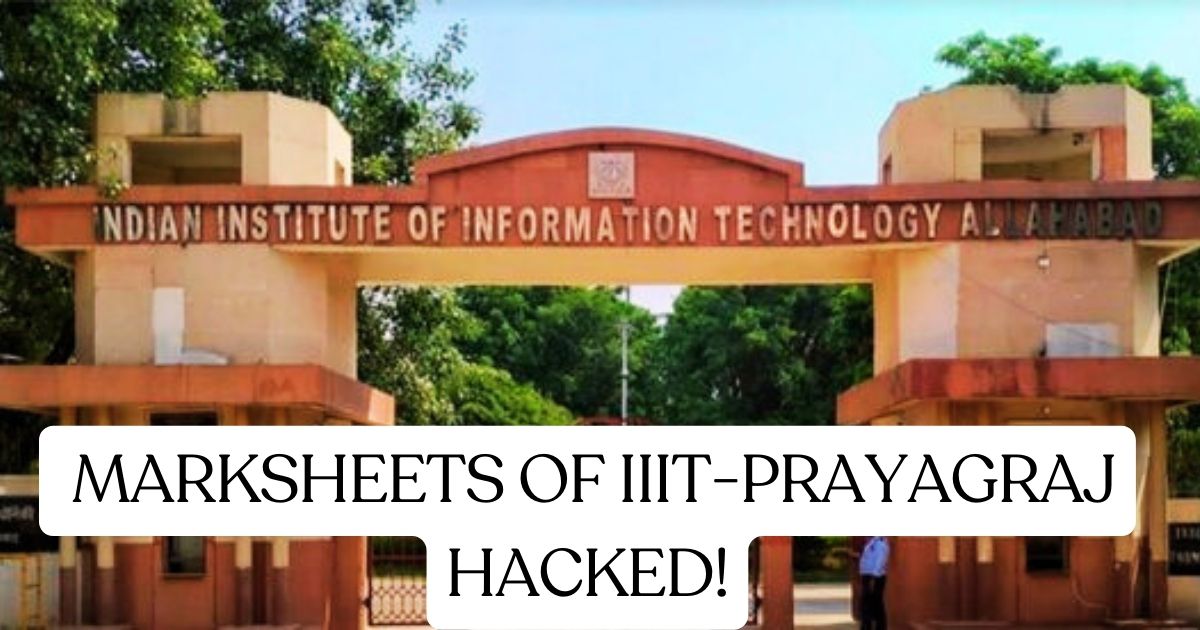PRAYAGRAJ: In a cyber fraud, eight students from the IIIT in Prayagraj have been suspended for hacking into the institute’s internal grading system and altering their marks.
The students reportedly manipulated the ERP system to increase their scores, but their actions were eventually detected, leading to swift disciplinary action.
According to sources, the students accessed the ERP system using unauthorized means and modified their grades. They allegedly bypassed security measures by exploiting vulnerabilities in the college’s digital infrastructure.
Upon discovery, the administration imposed a one-year suspension on the students and fined them Rs 10,000 each.
Cybercrime expert Prof. Triveni Singh warns that such hacking incidents are not isolated. “This type of fraud is becoming increasingly common in educational institutions. A gang of hackers operates by tampering with students’ marks in exchange for money,” he explained.
ALSO READ: Now Open: Pan-India Registration for Fraud Investigators!
He further said “These cybercriminals either infiltrate college networks directly or assist students in hacking ERP systems. The financial motivation behind such activities has led to an underground market where students willing to pay can secure inflated grades, compromising the integrity of the education system.”

Prof. Singh also stressed that such fraudulent activities are eroding trust in academic credentials. “If mark-sheets can be manipulated through cyber fraud, how can employers or institutions rely on them? This is not just a case of academic dishonesty; it is a serious threat to the credibility of our education system.”
Brilliant and hardworking students are increasingly feeling demotivated due to such unfair practices. “When students see others securing high grades through hacking rather than merit, it sends a demoralizing message. It devalues the efforts of genuine students and deteriorates the overall quality of education,” Prof. Singh pointed out.
A growing concern is that many college administrators and owners are treating educational institutions as mere businesses. “Many college owners seem least concerned about these fraudulent activities as long as they continue to generate revenue. This negligence only fuels more cyber fraud in academics,” Prof. Singh warned.
ALSO READ: Empanelment for Speakers, Trainers, and Cyber Security Experts Opens at Future Crime Research Foundation
To counter this growing threat, Prof. Singh emphasizes the need for stringent security measures in academic institutions. “A forensic audit of the ERP system of each college is essential to identify vulnerabilities and prevent future breaches,” he added. Institutions must implement multi-factor authentication, regularly update software security, and conduct routine cybersecurity audits.
In response to the IIIT breach, the administration has begun strengthening ERP security protocols, including stricter monitoring and advanced authentication mechanisms.



